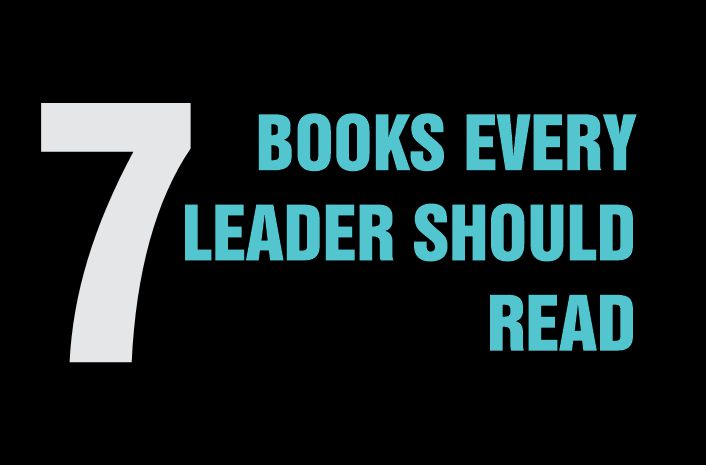Leadership is a journey of continuous learning, growth, and transformation. One of the most effective ways to refine your leadership skills and mindset is by helping yourself with the wisdom found in books.
These 7 leadership books every leader should read will put you on the right path to outstanding leadership.
You might be navigating challenges, inspiring a team, or striving for personal development, the right book can be a game-changer.
In this guide, we highlight seven leadership books that every leader should read.
These books are packed with timeless principles, practical strategies, and inspiring lessons from some of the greatest minds in leadership.
Get ready to discover the tools you need to boost your leadership and make a lasting impact.
Recommended: Types of Leadership Styles
Why Reading Leadership Books is Essential
Reading is an invaluable tool in the journey of personal and professional growth, particularly for people in leadership positions.
Engaging with literature on leadership can expand your perspectives and enhance decision-making skills.
Leadership books serve not only as resources of knowledge but also as practical guides, offering insights that can impact a leader’s effectiveness.
They often cover a wide range of theories, real-life case studies, and proven techniques that cater to leaders at every stage of their careers.
In today’s ever-evolving business industry, the role of a leader extends far beyond traditional management.
Continuous learning is vital for leaders to remain relevant and effective.
Furthermore, these 7 leadership books every leader should read serve as a source of inspiration, drawing from the experiences and insights of accomplished thought leaders across various fields.
These works often encapsulate real-world challenges faced by leaders and the innovative approaches taken to overcome them.
By studying these narratives, aspiring and established leaders alike can gain valuable lessons, encouraging them to think creatively and strategically.
This not only enhances their ability to motivate teams but also creates a culture of innovation within their organizations.
Related: How to Succeed with Self-awareness in Leadership
Criteria for Selecting These Books
When it comes to selecting leadership books that stand out as essential reads, several critical criteria were employed to ensure their relevance and impact.
The primary focus was on the proven influence these books have had across various industries.
It is important to choose texts that have not only captured the attention of many leaders but have also shaped their practices and philosophies.
The selected leadership books were chosen for their broad applicability and practical insights, making them relevant to leaders at all career stages.
These books address unique challenges faced by emerging, mid-level, and top-tier executives while emphasizing actionable strategies that can be implemented in real-world scenarios.
They empower readers to make positive changes within their teams and organizations.
Additionally, the books stand out for their well-researched foundations, integrating case studies, real-life examples, and credible research.
This balance of theory and practice ensures leaders are equipped to tackle modern challenges effectively. Together, these criteria define seven transformative reads for leadership growth.
Let’s take a closer look at the 7 leadership books every leader should read:
Recommended: Demystifying Transformational Leadership
1. “Leaders Eat Last” by Simon Sinek
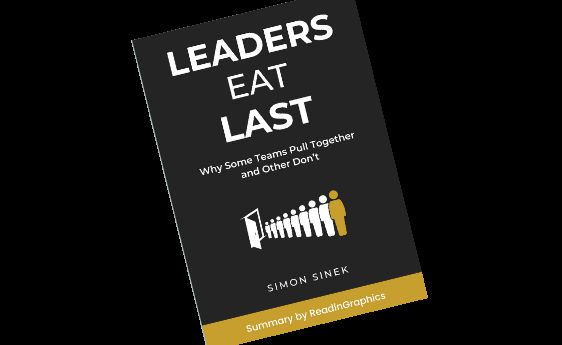
In “Leaders Eat Last,” Simon Sinek explores the fundamental qualities that define effective leadership.
He emphasizes the importance of creating a safe and trusting environment where team members feel valued and motivated to perform at their best.
Sinek uses case studies from various organizations to illustrate how leaders who prioritize their team’s well-being encourage loyalty and commitment, ultimately driving success.
The key takeaway from this book is that true leadership is about serving others and building a culture of collaboration.
Related: How to Build Leadership Legacy
2. “The 7 Habits of Highly Effective People” by Stephen R. Covey
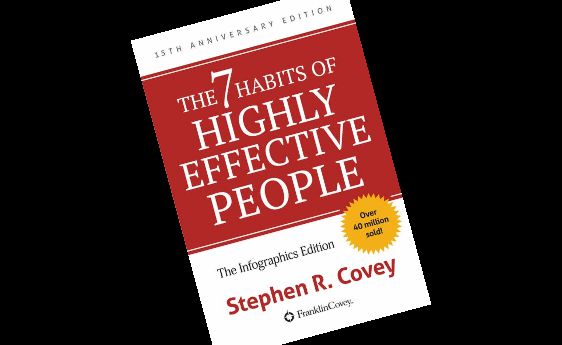
Stephen R. Covey’s “The 7 Habits of Highly Effective People” is a classic in personal and professional development.
Covey outlines a principle-centered approach to leadership, emphasizing the alignment of personal and organizational values.
The book covers seven pivotal habits, such as being proactive and synergizing, which guide leaders in honing their effectiveness.
The insights offered in this book encourage leaders to adopt a holistic view of effectiveness, combining personal integrity with collaborative skill development.
Related: How Mentorship and Coaching Improve Leadership Growth
3. “Good to Great” by Jim Collins

Jim Collins’s “Good to Great” goes a full dive into what separates great companies from their mediocre counterparts.
Through extensive research, Collins identifies key factors that contribute to a company’s transformation from “good” to “great,” notably the importance of strong leadership and the discipline to make tough decisions.
The concept of ‘Level 5 Leadership,’ characterized by humility and professional will, is particularly salient, providing readers with a framework for achieving greatness within their organizations.
4. “Dare to Lead” by Brené Brown

Brené Brown’s “Dare to Lead” takes an unconventional approach to leadership by highlighting the significance of vulnerability and courage in leadership roles.
Through compelling research and storytelling, Brown proposes that effective leaders embrace vulnerability as a strength that supports innovation and trust.
This book challenges traditional notions of leadership by advocating for authenticity and emotional intelligence as essential components for developing meaningful connections with teams.
5. “The Five Dysfunctions of a Team” by Patrick Lencioni
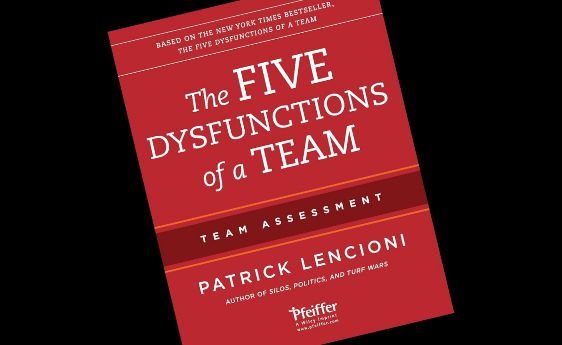
In “The Five Dysfunctions of a Team,” Patrick Lencioni presents a model for understanding the common pitfalls that teams face.
Through a narrative style, Lencioni outlines the key dysfunctions that can hinder team performance, including the absence of trust and avoidance of accountability.
The book not only identifies these challenges but also provides actionable strategies for overcoming them, making it a valuable resource for leaders who aim to cultivate cohesive and high-performing teams.
6. “Start with Why” by Simon Sinek
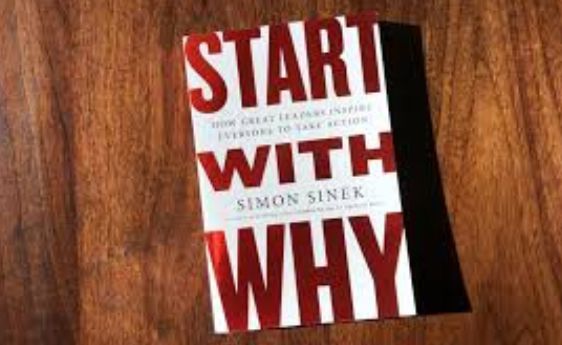
“Start with Why by Simon Sinek” is a groundbreaking leadership book that explores the power of purpose in inspiring teams and driving success.
Sinek introduces the concept of the “Golden Circle,” emphasizing that great leaders and organizations begin with a clear understanding of why they exist, and their core purpose or belief, before focusing on how they operate or what they offer.
This approach creates trust, loyalty, and motivation among team members and customers.
The book’s practical insights help leaders align their vision with meaningful actions, making it an essential read for anyone seeking to lead with authenticity and inspire lasting impact.
7. “Drive: The Surprising Truth About What Motivates Us” by Daniel H. Pink

Daniel H. Pink’s “Drive” shifts the focus to what truly motivates individuals in the workplace.
Pink argues that traditional incentives, such as monetary rewards, are less effective than intrinsic motivators, including autonomy, mastery, and purpose.
This book helps leaders reframe their approach to motivation and employee engagement, offering practical insights on how to create a work environment that promotes innovation and fulfills employees’ deeper needs for growth and autonomy.
Related: Habits that Cause Leadership Failure
Key Lessons and Themes from These Books
Leadership literature often presents a myriad of insights that can shape a leader’s approach in both professional and personal spheres.
Among the seven foundational texts highlighted, several recurring themes and critical lessons stand out, offering indispensable guidance for contemporary leaders.
1. Adaptability
One pivotal lesson across these works is the importance of adaptability in times of uncertainty.
Leaders must navigate an ever-changing landscape, and the ability to pivot strategically in response to new challenges is essential.
This adaptability creates resilience, allowing teams to withstand turbulent times and also to thrive within them.
2. Empathy
Equally important is the theme of empathy and trust, which serve as the bedrock of effective team dynamics.
Leaders who cultivate genuine connections with their team members are more likely to inspire loyalty and drive engagement.
Empathy allows leaders to understand their team’s perspectives and sustain an environment of open communication, bridging gaps and enhancing collaborative efforts.
3. Strategic Vision
Additionally, the necessity for a strategic vision emerges as a fundamental concept.
A clear vision helps in balancing short-term objectives with long-term aspirations.
Leaders must articulate their goals effectively to align their teams, ensuring everyone is moving in the same direction.
This strategic foresight enables leaders to prioritize tasks that contribute to the overall mission while remaining flexible as circumstances evolve.
4. Ownership
Finally, the principles of ownership and accountability feature prominently in discussions of responsible leadership.
Leaders must embody accountability, setting a precedent for their team.
This culture of ownership encourages individuals to take initiative, make informed decisions, and accept responsibility for outcomes, whether positive or negative, thereby creating a high-performance environment.
How to Apply What You Learn
Leadership books are a stepping stone toward improvement, but their true value lies in application.
Leaders should extract key takeaways, set actionable goals, and develop a personal plan to integrate insights into their practices.
Sharing knowledge with team members induces collective learning, creating a collaborative environment for growth.
Regular discussions on book lessons can ignite innovation and strengthen team dynamics.
Continuous engagement with these texts, through periodic reviews and reflections, reinforces learning and adapts insights to evolving challenges.
By combining personal commitment, team collaboration, and consistent revisiting of ideas, leaders can cultivate a culture of growth, innovation, and adaptability, maximizing the impact of leadership literature on their journey toward excellence.
Pious Clements is the insightful voice behind "The Conducts of Life" blog, where he writes about life ethics, self-development, life mastery, and the dynamics of people and society.
With a profound understanding of human behaviuor and societal dynamics, Pious offers thought-provoking perspectives on ethical living and personal growth.
Through engaging narratives and astute observations, he inspires readers to navigate life's complexities with wisdom and integrity, encouraging a deeper understanding of the human experience and our place within society.
